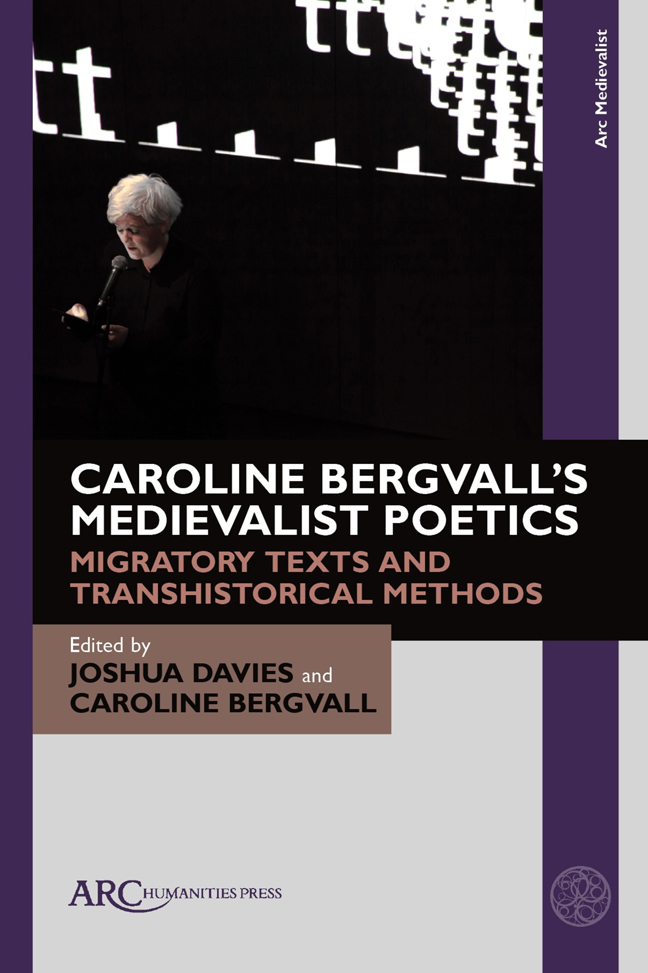Chapter 13 - Alisoun Sings
Published online by Cambridge University Press: 20 February 2024
Summary
The heart is the book, exclaim medi eval lovers and philosophers. It is ones guidance and ones consistence hidden across inked out pages. It is the reso-nator chord, the corda of “hearts” when chanting, or when reciting by heart. I asked, is the heart guidance?
ALISOUN SINGS IS Caroline Bergvall’s latest book, and the closing volume of an amaz-ing trilogy focused on medi eval English, ecopoetics, feminism, and an active address of body, form, and the power of personal and collective voice. The third book calls upon the spirit and spiritual force of Chaucer’s Wife of Bath, Dame Alisoun, re-contextualized in our twentyfirstcentury global culture.
Bergvall presents a dualism that reveals the passage of her own work and the endurance of the six hundred-year-old Alisoun, who continues to represent women and femininity. Alisoun’s singing examines countless topics that ring as true today as they did in the fourteenth century. Investigations into freedoms and efforts fill the pages. Social organizing, publication and speech, sexuality, hate, and love are just a handful of these topics. But as easy as it is to situate Alisoun Sings in its own, important space, this would be too limiting. The book’s predecessors, 2011’s Meddle English and 2014’s Drift, are fundamentally preceding, informing the third book and the trilogy as a whole.
Meddle English, which holds roots in an investment in experimental language, estab-lishes an intention toward and a paradigm for polylingual values. From the opening prose work “Middling English,” Bergvall announces the process of discovery through history and etymo logy, using archaeo logical synthesis as analogy. “Language is its own midden ground,” Bergvall writes. “Letters, sounds, words are discarded from a language during accidental breaks. Or dispensed with, like outmoded cooking utensils. Or pulled out, like teeth. Entire jawlines of these.” Following this piece, the book begins to spiral outward, bringing in layer upon layer of language and languages breaking; the result is a wonderful merge of languages and concepts within languages. Not only multilingual, Bergvall’s convergence splices and pulls apart individual sounds, wracks the limitation of words, phonemes, and morphemes into puffs of utterance.
Often the elements of language Bergvall works from can be found in external sources. Though Bergvall’s notes indicate an ongoing exploration from earlier works, this collage form is established across individual works thanks to the antho logical nature of Meddle English.
- Type
- Chapter
- Information
- Caroline Bergvall's Medievalist PoeticsMigratory Texts and Transhistorical Methods, pp. 125 - 128Publisher: Amsterdam University PressPrint publication year: 2023

